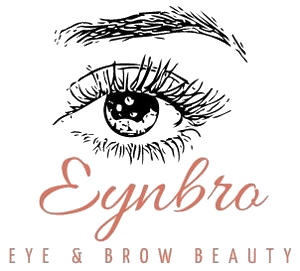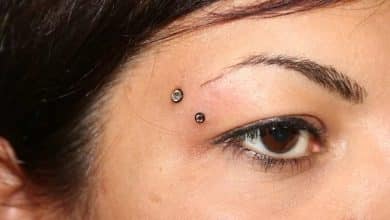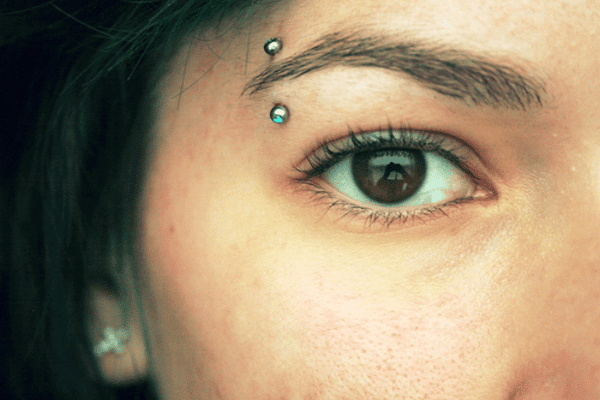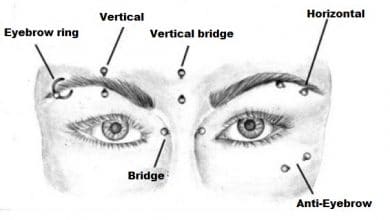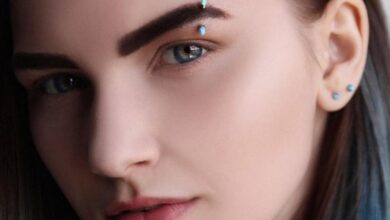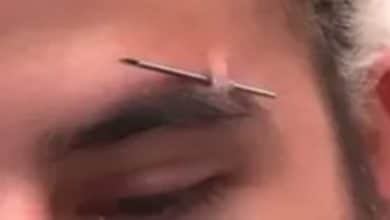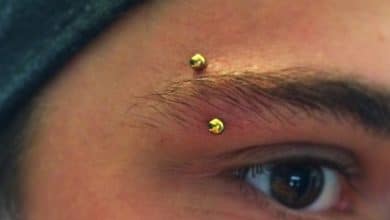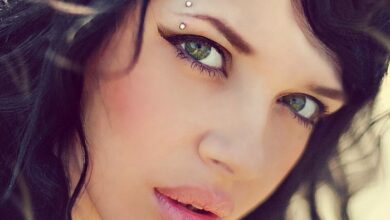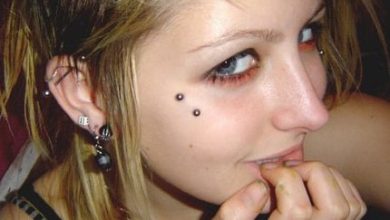Eyebrow piercing in islam: Understanding the Religious Perspective
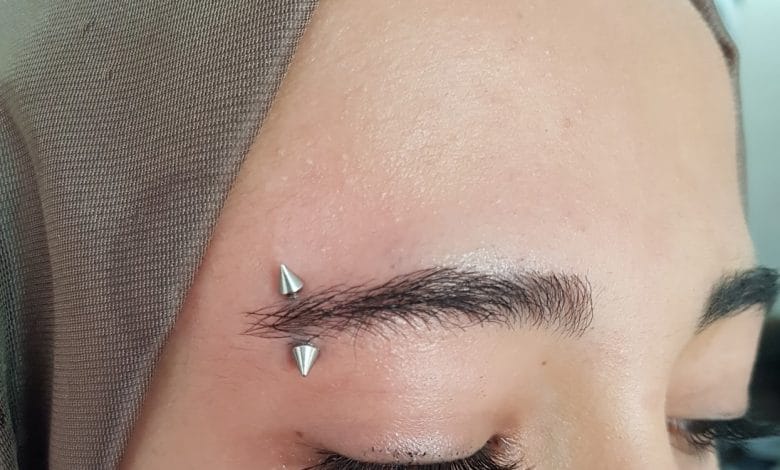
Eyebrow piercing has become a popular trend among young people, but for Muslims, it raises questions about its permissibility in Islam. Some people argue that it is permissible in Islam, while others believe it is forbidden. In this article, we will explore the religious perspective on eyebrow piercing in Islam and examine the arguments for and against it.
There are no restrictions on the number of piercings one can have, except that one should not be excessive and should not harm one’s body. Thus, it is permitted to pierce the ear and nose for embellishment purposes. As for the piercing of the navel, tongue and other similar parts of the body, the scholars have not ruled on this matter.
A symbolic meaning of this piercing, for a reason related to the group (rite of passage, belonging to a group, making a difference with another group, …). This includes fashion related motivations. a shock value or pure rebellion. a good physical feeling of this particular piercing. Getting your nose pierced is a practice of Hindus, not Muslims. Therefore, it is forbidden for Muslims to get any other part of the body pierced except the ear,” said Ustaz Azhar in his Kelantan dialect in one of his YouTube videos. … However, for those whose cultures do not practice nose piercing, it is haram.”
According to Christian belief, participating in activities or a lifestyle that is considered sinful makes the act sinful, even if it is not objectively clear or “done” that the act is sinful. Believing that piercing is a sin and doing it anyway makes it a sin – essentially a self-fulfilling prophecy. Ever since Jungkook appeared with an eyebrow piercing during the promotion of K-pop group BTS’s song “Butter,” fans have been puzzled. “Yes, I had my eyebrows pierced… It became complicated to keep putting stickers on, so I got them pierced.
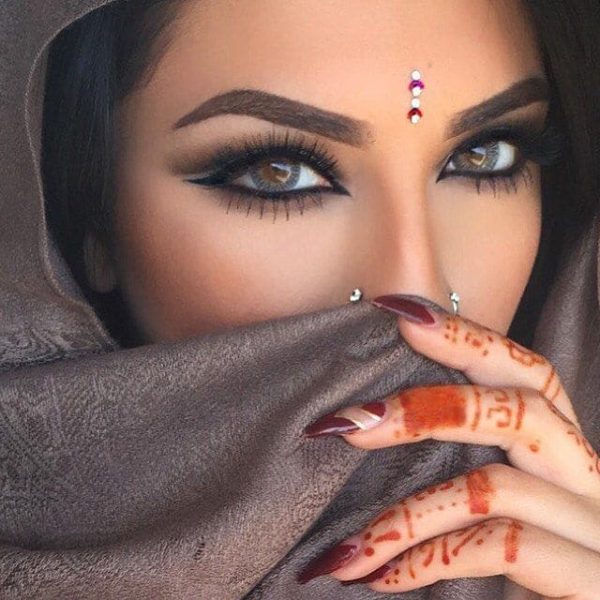
General View on Piercing in Islam
In Islam, piercing is not explicitly addressed in the Quran or the Hadith. However, its permissibility is derived from Islamic principles that govern adornment, modesty, and respect for the natural creation.
However, rulings on other types of piercings, including eyebrow piercings, are more nuanced and vary depending on cultural norms, health considerations, and individual intentions.
Cultural Context and Flexibility
Islamic rulings on adornment often accommodate cultural differences. In some cultures, eyebrow piercing is seen as a contemporary form of beautification, while in others, it may be perceived as immodest or unnecessary.
If an eyebrow piercing aligns with cultural practices that are not in conflict with Islamic values of modesty and decency, some scholars argue it may be permissible. For example, piercings like nose rings are acceptable in many South Asian and Middle Eastern cultures because they are deeply rooted in tradition. Similarly, the permissibility of eyebrow piercing might depend on its acceptance as a non-excessive, culturally relevant form of adornment.
Preserving Modesty and Intentions
In Islam, adornment must adhere to the principle of modesty. Women are encouraged to restrict the visibility of their adornments to mahrams (close male relatives) and other women. If an eyebrow piercing is likely to draw undue attention from non-mahrams, it may contravene Islamic guidelines.
Additionally, the intention (niyyah) behind obtaining an eyebrow piercing is crucial. If the purpose is to enhance beauty within permissible bounds, it may be acceptable. However, if it is motivated by a desire to imitate non-Islamic trends or attract attention in inappropriate ways, it could render the practice impermissible.
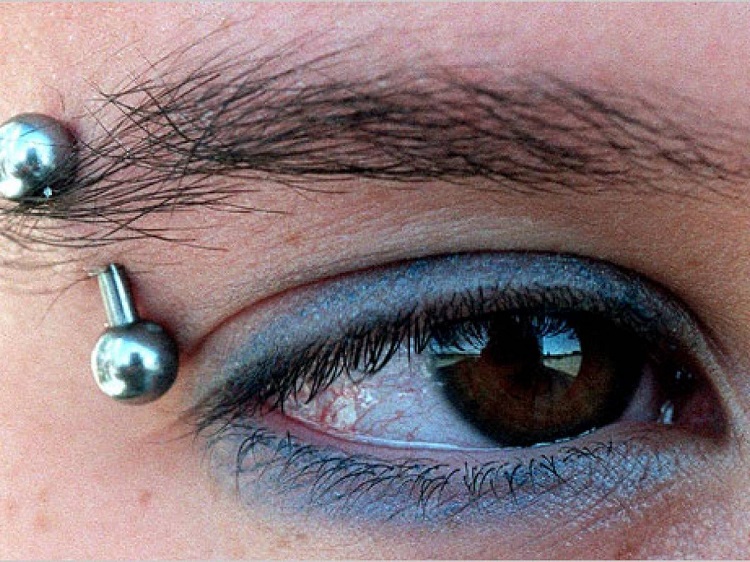
Health Considerations
Islam emphasizes the importance of safeguarding one’s health and well-being. Eyebrow piercings, like any other body modification, carry risks such as infections, allergic reactions, and scarring. These risks must be minimized through proper hygiene, safe piercing practices, and aftercare.
If the procedure is deemed unnecessarily harmful or poses significant health risks, it would likely fall into the category of haram (forbidden). The body is considered an amanah (trust) from Allah, and any intentional harm inflicted upon it is discouraged in Islamic teachings.
Respect for Natural Creation
A foundational principle in Islam is the respect for Allah’s creation. The Quran states, “There is no altering Allah’s creation” (Surah Ar-Rum, 30:30). While this principle does not explicitly prohibit reversible adornments like piercings, it serves as a guideline against excessive or unnecessary modifications to the body.
Eyebrow piercing may be considered permissible if it does not significantly alter the natural form or serve a vain purpose. Scholars often advise moderation in all forms of adornment, emphasizing that beauty should align with modesty and not defy the fitra (natural disposition).
Piercing Done Before Conversion to Islam
For converts to Islam, piercings obtained before embracing the faith are generally permissible to retain, provided they adhere to Islamic guidelines of modesty and cultural relevance. For instance, an eyebrow piercing need not be removed if it is not associated with immodest behavior and is kept private from non-mahrams.
Eyebrow Piercing in Islam
The question of whether eyebrow piercing is permissible in Islam is a contentious issue. Some Muslims believe that it is permissible because there is no explicit prohibition in the Quran or the Hadith (the sayings and actions of the Prophet Muhammad). They argue that as long as the piercing is not harmful to the body and does not involve anything that is haram (forbidden) in Islam, such as alcohol or pork, it is permissible.
Others, however, believe that eyebrow piercing is haram because it involves changing the natural form of the body, which is considered a form of mutilation. They argue that the body is a gift from Allah and should not be altered in any way. Additionally, they believe that the act of piercing the eyebrow is similar to the act of tattooing, which is explicitly forbidden in Islam.
Scholarly Opinions on Eyebrow Piercing
Islamic scholars differ on the permissibility of eyebrow piercings:
- Some consider it permissible under cultural norms and within modest boundaries.
- Others discourage it due to its association with modern, non-Islamic trends or the potential for harm.
Ultimately, consulting a knowledgeable scholar who understands both the individual’s cultural context and Islamic principles is essential.
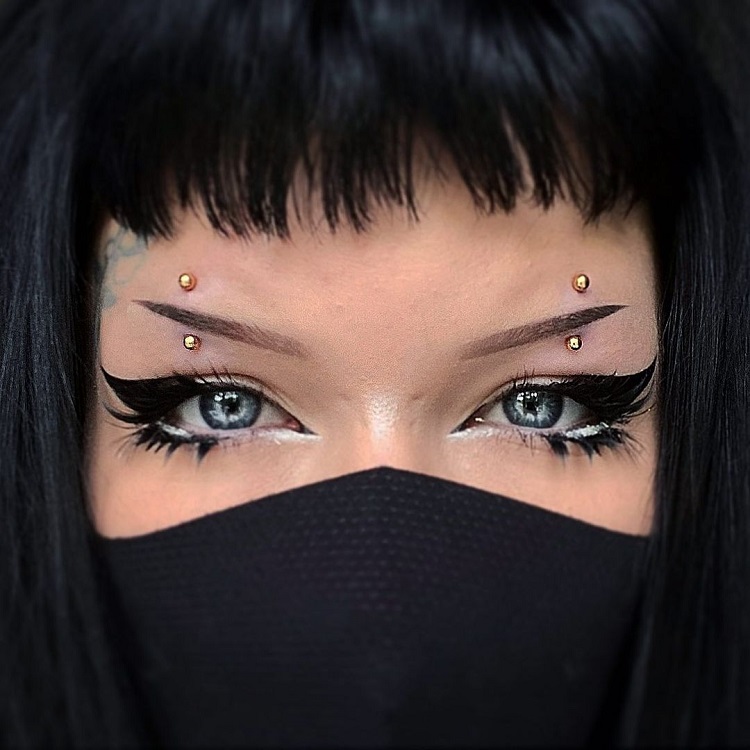
The Arguments for and Against Eyebrow Piercing in Islam
Arguments for Eyebrow Piercing
Those who believe that eyebrow piercing is permissible in Islam argue that:
- There is no explicit prohibition in the Quran or the Hadith on eyebrow piercing.
- The act of piercing the eyebrow is not harmful to the body and does not involve anything that is haram in Islam.
- It is a form of self-expression and does not necessarily involve changing the natural form of the body.
Arguments Against Eyebrow Piercing
Those who believe that eyebrow piercing is haram in Islam argue that:
- The body is a gift from Allah and should not be altered in any way.
- The act of piercing the eyebrow is similar to the act of tattooing, which is explicitly forbidden in Islam.
- It involves changing the natural form of the body, which is considered a form of mutilation.
- It is a form of imitation of non-Muslims and does not have any Islamic significance.
Conclusion
The permissibility of eyebrow piercing in Islam depends on several factors: cultural acceptance, intention, health considerations, and adherence to Islamic principles of modesty and respect for natural creation. While it is not explicitly prohibited, its practice must be approached with caution and consciousness of Islamic values.
For those considering eyebrow piercing, seeking guidance from a local scholar and ensuring safe practices can provide clarity and confidence in making an informed decision.
TAKEAWAY: While there are differing opinions on the permissibility of eyebrow piercing in Islam, the importance of personal choice and respect for one’s body should be kept in mind. As with any decision related to body modification, it is up to the individual to make an informed decision based on their own understanding and interpretation of Islamic teachings.
Commonly asked questions
1. Is eyebrow piercing explicitly haram in Islam?
Eyebrow piercing is not explicitly mentioned in Islamic texts. Its permissibility depends on factors such as cultural norms, modesty, and health considerations.
2. Can men get an eyebrow piercing in Islam?
Men are generally discouraged from obtaining piercings associated with women, including eyebrow piercings, as it may be considered an imitation of the opposite gender, which is prohibited in Islam.
3. Are there health risks associated with eyebrow piercings that make them haram?
If an eyebrow piercing poses significant health risks, such as infections or permanent damage, it may be considered haram, as Islam discourages intentional harm to the body.
4. Is it permissible to display an eyebrow piercing to non-mahrams?
No, women are instructed to maintain modesty and not display adornments, including piercings, to non-mahrams.
5. Does cultural acceptance of eyebrow piercing affect its permissibility?
Yes, cultural norms play a role in determining the permissibility of piercings in Islam. If eyebrow piercing is a customary and modest form of adornment in a particular culture, it may be deemed permissible.
6. What should a convert to Islam do about a pre-existing eyebrow piercing?
A convert is not required to remove an eyebrow piercing as long as it aligns with Islamic guidelines of modesty and is not associated with non-Islamic or immodest practices.
7. Are piercings in sensitive areas generally allowed in Islam?
Piercings in sensitive areas, such as the tongue or belly button, are often discouraged or deemed haram due to health risks and potential immodesty.
8. Can I perform wudu with an eyebrow piercing?
Yes, as long as water can reach the skin beneath the piercing, it does not invalidate wudu (ablution).
9. How can I ensure my eyebrow piercing aligns with Islamic teachings?
Focus on maintaining modesty, minimizing health risks, and ensuring that the piercing is culturally and religiously appropriate.
10. Are multiple piercings on the face allowed in Islam?
Multiple piercings may be permissible if they adhere to Islamic principles of modesty and do not harm the body. However, moderation is always encouraged.
By considering these insights and seeking scholarly guidance, Muslims can navigate the topic of eyebrow piercing with a balance of faith, culture, and personal expression.
